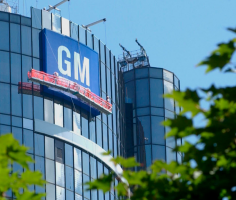
— A General Motors brake vacuum pump class action lawsuit alleges the following models and model years are too dangerous to drive due to brake failures.
- 2015 to present Cadillac Escalade
- 2014 to present Chevrolet Silverado
- 2015 to present Chevrolet Suburban
- 2015 to present Chevrolet Tahoe
- 2014 to present GMC Sierra
- 2015 to present GMC Yukon/Yukon XL
The lawsuit alleges the vehicles have "irreparable and defective" braking systems because the brake boosters lose their vacuum.
The GM vehicles allegedly suddenly and unexpectedly lose the brake boosters which limits braking ability and makes the brake pedals hard to press. The plaintiff says this is a clear safety hazard and one GM has long known about.
Failure of the brake vacuum pump not only requires replacement of the pump, but the plaintiff alleges engine oil may enter the vacuum line connected to the brake booster. This means the booster must be replaced in addition to replacing the vacuum pump.
The plaintiff says he purchased a 2015 Chevrolet Silverado 1500 in June 2017 at a Florida GM dealer. In January of 2019, he was driving downhill when the brake pedal allegedly suddenly became hard and the truck became difficult to slow down.
The plaintiff says he had to use all the force he could to slow down the truck and he had to avoid losing control into a ditch.
The lawsuit says a GM dealer found the vacuum pump had failed, an expense of more than $500 the plaintiff says he had to pay. However, the lawsuit alleges his problem hasn't been repaired because the replacement vacuum pump is just as defective as the original.
GM issued a technical service bulletin (TSB) to dealerships in 2015 that said, “a customer may comment on a hard brake pedal or that increased effort is needed to depress the brake pedal. While performing normal diagnostics, fluid may be found in the brake booster and/or the booster vacuum line.”
Dealers were told to replace the vacuum pumps, the vacuum lines between the boosters and the pumps, the brake boosters and the master cylinders.
The class action alleges the automaker issued more bulletins, but they "contain false, misleading, or deceptive information about the potential for curing the defects because the purported repairs do not fix the defect and the statements are designed to mislead dealers and technicians who repair Class Vehicles."
GM released a new version of TSB PIT5361 in 2018 concerning hard brake pedals, failed vacuum pumps and brake boosters which added additional model years of the vehicles.
A General Motors brake vacuum pump investigation was opened in November 2018 that covered more than 2.7 million vehicles after the National Highway Traffic Safety Administration (NHTSA) received 111 complaints about hard brake pedals in Cadillac, Chevrolet and GMC vehicles.
And in September 2019, GM recalled 3.4 million vehicles after brake vacuum pump problems had caused at least 110 crashes and 13 injuries.
The GM brake vacuum pump class action lawsuit was filed in the U.S. District Court for the Northern District of Florida: Jason Compton, et al., v. General Motors LLC.
The plaintiff is represented by Cory Watson, P.C., Wyly-Rommel, PLLC, Beasley Allen, and Kiesel Law LLP.




